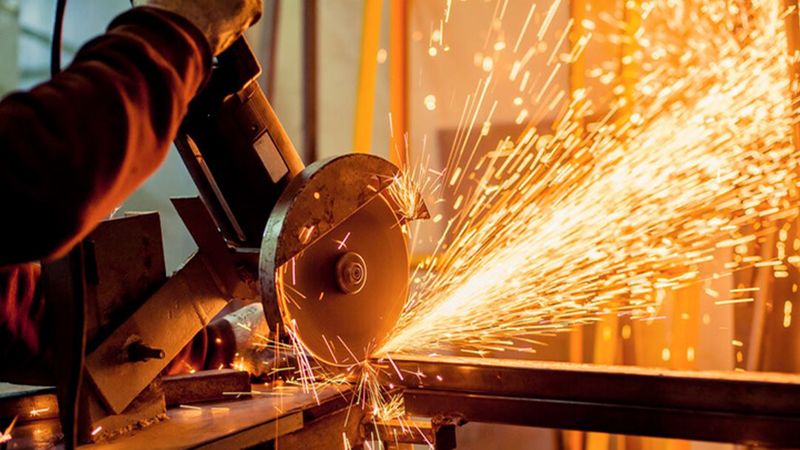Companies must triple their emission intensity reductions in the next five years to align with a 1.5 degree path, however there is not enough investment into market-ready technologies, the World Benchmarking Alliance’s (WBA) first Heavy Industries Benchmark has revealed.
The benchmark assessed and ranked 91 global companies, of which 12 are in aluminum, 34 in cement, and 45 in steel production, including Cemex, ArcelorMittal, Holcim, Chalco and Rio Tinto. These sectors deliver the materials necessary for a sustainable future, such as electric vehicles, wind turbines and solar panels.
However, figures show manufacturers and suppliers of these materials are responsible for 18% of global CO2 emissions, with 91 assessed companies responsible for 7% of global energy-related emissions in 2022.
The aluminium sector supplies battery enclosures for electric vehicles, charging stations, and power transmission lines. South32, a mining and metals company, achieves half of the points available for just transition and is the best performer of the aluminium industries evaluated. Only Arconic and Norsk Hydro have current emissions intensity reductions in line with the company’s 1.5 pathway.
As for cement companies, although they are active in key low-carbon business models, more progress is needed. While 60% of companies are active in increasing the recycling rate of concrete and cement, only 30% foresee growth in this activity over the next five years. However, the three cement companies – Heidelberg Material, CRH and Taiwan Cement – have established reduction targets that are fully 1.5 aligned.
Lastly, steel is essential for ‘green’ products such as wind turbines, electric vehicles and low carbon homes. Only 24% of the investigated steel companies are aiming to reduce its Scope 1 and 2 emissions by 95% by 2050, and only three companies disclose targets for their Scope 3 emissions. The companies – China Steel, JSW Steel, Salzgitter, Thyssenkrupp and Tata Steel – report R&D spending on non-mature low-carbon technologies.
WBA urged companies to reduce their emissions by 2030, but noted this is proving difficult due to insufficient investments in low-carbon technologies. Of the companies assessed, 24% disclose R&D expenditure in low-carbon technologies, and just 10% in non-mature technologies.
However, the benchmark found evidence of good practice among the companies. 28% have transition plans that encompass all business operations; 13% cover the entire companies value chain; 23% incorporate a carbon price calculation; and a further 8% align with low-carbon scenarios.
WBA also assessed companies on their social impact and just transition efforts. Evidence suggests that companies do not support a just transition, scoring less than 5% on average. This highlights the need for improvement, however, top performers prove that a just transition is possible across the sectors.
WBA is a non-profit that assesses and ranks influential companies on their contribution to Sustainable Development Goals (SDGs).
Vicky Sins, world benchmarking alliance’s decarbonisation and energy transformation lead, said: “Heavy industries provide a massive opportunity to help us reach and ‘cement’ a rapid, just transition – but if the sector does not accelerate action, they will be a significant obstacle to global decarbonisation targets.
“We need strong accountability, leadership and urgent action from aluminum, cement, and steel producers to ensure a just, low-carbon future.”








